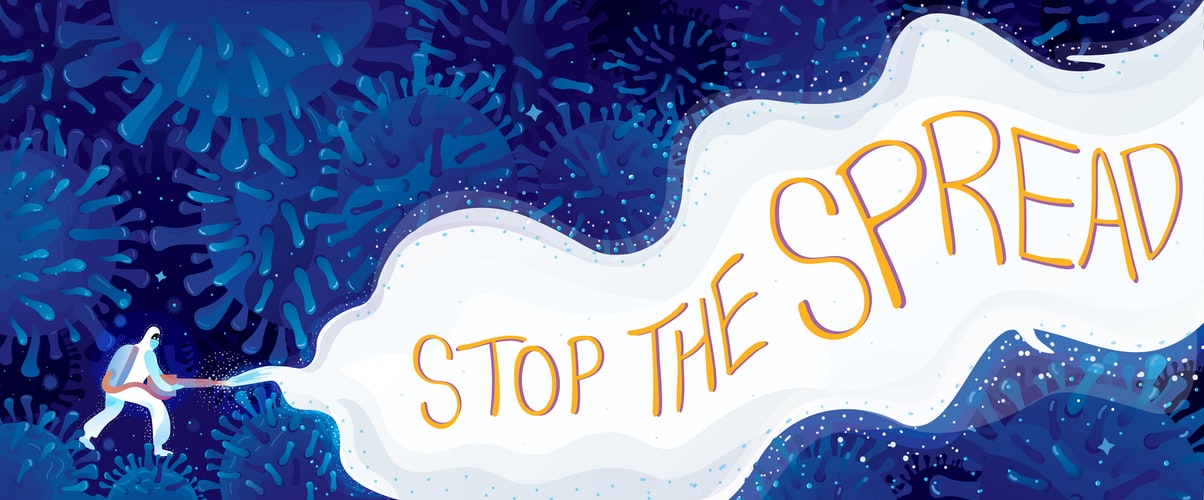In February, I flew to New Delhi from Brisbane via Bangkok. Aware of how coronavirus was making inroads into countries around the world, I felt a sense of relief while being screened for a temperature and other symptoms.
Back then, India had just three cases. We have come a long way since then – from single-digit daily additions to five-digit daily additions today. During this interval – from the lockdown to the unlocking phase – I couldn’t help but notice how our frames of reference, self-serving bias and adaptation, alongside rumours and expert opinion, amongst other things, play important roles in shaping our day-to-day behaviour.
At some point during the lockdown, the state of Maharashtra had just crossed the 10,000 mark (of confirmed cases), which momentarily worried all of us. Where I reside (New Delhi), I frequently heard, “Oh! The situation there is so bad.”
In a way, this comparison somehow made us feel safer even though the numbers were rising steadily in Delhi too. But somehow, comparing the data made us feel safer.
Interestingly, when New Delhi crossed the same mark, we did not feel the pinch as intensely as when Maharashtra did. Why? Because, we were still doing better than Maharashtra, where the numbers were much worse by that time.
Simply put, we had revised our earlier benchmark to the new numbers that described the (then) current situation in Maharashtra.
As humans, we seldom see a given situation from a standalone perspective, for some reference is often there to make a comparison with, which in turn, acts as a new benchmark. Now, doing better than others comforts us and, in the process, offers us hope in situations like these.
Also read: The Embarassing Eight: How Not To Lead a Pandemic
At the same time, however, it is too easy to get carried away to a point where the comparison (with a worse situation) becomes the central point of focus, and the very pinch of an existing situation-at-hand is thus ignored. More often than not, we pick and choose our reference points to rationalise or justify our decisions, and ignore many possibilities for betterment. Sometimes a reference-point is so ubiquitous, that we take its presence for granted enough to, in effect, ignore it.
During my college days, initially, I used to spend Rs 10 for a cup of coffee. Gradually, I started exploring cafés with some friends. The jump, I noticed, in the price for a cup of coffee, was huge enough for me (relative to my initial belief about a reasonable price for a good cup of coffee – Rs 10). So, I chose the least expensive coffee-variant – the espresso (which I hated, to be honest, but bitter coffee couldn’t deter me from having a good time with my friends). In my subsequent visits to the café, buying just a little more expensive coffee did not pinch me much – it was just Rs 20 to 30 more than the price of the least expensive one.
I did not realise when my point of reference shifted from that Rs 10 coffee to the least expensive coffee of that café and it has kept moving upwards ever since – of course, I have by now, tried some of the finest coffee in the world, and the element of affordability can explain a great deal of the said shift from the reference-point of my much younger self.
This sums up our current thought process. In a nutshell, our reference points are shifting upwards in ways we do not realise – and we need to be conscious of it.
Also read: Of Privilege and Struggle in the Time of Coronavirus
We frequently hand-pick news/messages that serve our beliefs and purpose; that older people are more vulnerable is often understood as younger ones aren’t, and so are free to move around. When the prime minister, in his address to the nation, asked us not to panic, he also meant to not be negligent at the same time (a situation under control doesn’t pre-empt the need to take precaution). Those who are careless, act diligently on the ‘do not panic’ part only and conveniently ignore the rest.
Our memories fade with time in the interest of evolutionary advantage (indeed time is the best healer), that necessitates moving on without holding on to unpleasant experiences. In the current situation, however, this can compromise our survival ability. News that is sensational today loses its importance in ten days or more. This pandemic has been around for quite some time and we have simply learned to live with it. Our targets have shifted from completely arresting the spread of COVID-19 to the acceptance of a potentially fatal sickness.
The first step to acting wisely is to recognise where we want to head from here, and then take necessary action to reverse the situation around us, instead of taking comfort in the fact that some places are in a worse situation. We shouldn’t idealise those who have the constant itch for social gatherings (as a consequence of a subliminal temptation to give in to our social needs), for otherwise, a five-digit daily addition is bound to become the new normal for us.
It may, therefore, help to think of New Zealand, instead of the US, as our next reference-point. For in the wise words of James Cameron,
“If you set your goals ridiculously high and it’s a failure, you will fail above everyone else’s success.”
Priyanka Kothari is a senior research fellow at the Indian Statistical Institute, Delhi.
Featured image credit: United Nations/Unsplash

